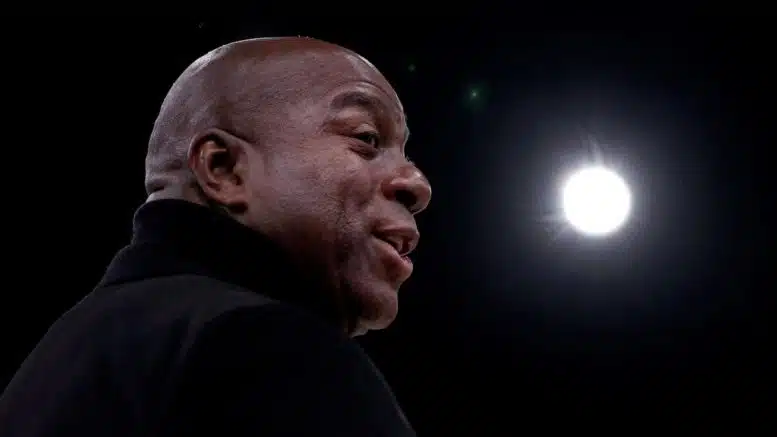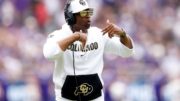They told one to “shut up and dribble.” They thought another was going to desecrate the Champions Dinner at The Masters. They speculated that one’s affinity for gambling was the reason his father was killed. We all thought the last one was going to die 32 years ago. Black athletes aren’t just resilient — they’re filthy rich.
This week, Forbes announced that Magic Johnson has joined the Billionaire Boys Club, as he’s the fourth member of a prestigious group that already includes LeBron James, Tiger Woods, and Michael Jordan as the only billionaire athletes on the planet. And despite how much Woods has tried to absolve his Blackness over the years, even once deeming himself “Cablinasian” — He’s Black, just like everybody else in this exclusive club.
Think about that.
The PGA wasn’t integrated until 1961. It took until the 1950s before a Black league like the NBA to even allow Black players to play. And yet, despite the head start that white athletes enjoyed, on top of advancements in socioeconomics due to racism and slavery, the athletes with the most money aren’t white.
“My family didn’t come from money, that’s one thing that hurt us [sometimes]. When you don’t come from money, you don’t know. I didn’t even know what stocks [were] at that time,” Johnson said on the All The Smoke podcast earlier this year. “So I passed on the stocks. Can you imagine? 45 years, $5 billion that stock would have been worth today.”
Johnson’s ownership stakes in the Washington Commanders, Los Angeles Sparks, Los Angeles Dodgers, and LAFC, and his investments in movie theaters, Starbucks, and a health insurance provider have his net worth at $1.2 billion. According to Forbes, Woods comes in at around $1.1 billion, James is at $1 billion, and Jordan is at $3 billion.
Despite the racial aspect, the sport these athletes play is also interesting.
In golf, we know Tiger was the money man until LIV recently opened the bank trying to recruit players. There was a report that Woods turned down between $700 to $800 million to remain loyal to the PGA — before the PGA proved they were never worthy of loyalty.
In baseball, there are at least seven players with $300 million-plus contracts. And that doesn’t even include the record-breaking contract we all know that Shohei Ohtani will soon demand.
And in football, we watched Patrick Mahomes sign a 10-year contract worth up to $503 million. As of now, at least nine quarterbacks in the NFL have contracts that could pay them a minimum of $230 million.
But basketball, the “Black sport” that’s played by Black athletes who Ron DeSantis once called “freaks of nature,” produces the real money makers.
On Oct. 31, 1950, Earl Lloyd became the first Black player in NBA history. I’m guessing he never thought what Jordan, James, Woods, and Johnson have accomplished was possible. On April 25, 1950, Chuck Cooper was the first African-American player drafted by an NBA team. On May 24, 1950, Nat (Sweetwater) Clifton became the first African-American to sign an NBA contract.
Three Black men made history in the NBA so that three Black basketball players could make sports history — along with a Black golfer.
However, what you won’t see on any Forbes list is a Black person as a majority team owner who is making much more than Magic, Michael, LeBron, and Tiger, as the owner’s box is still one place that is rarely integrated. The NFL and MLB have never had Black owners. The NBA has only had two but for the same team. Earlier this year, Michael Jordan sold the Charlotte Hornets. He was the only Black majority owner of a major American sports league. The sale of the team elevated him on the Forbes list while taking away the only seat we had at the table.
“Sometimes it be your own people” — An old African-American proverb.
Original source here
#Sports #billionaire #athletes #Black #NBA #NFLers #note





